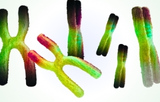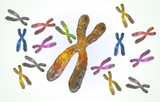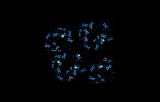Cytogenetics is a specialized branch of genetics focusing on the study of chromosomes—the microscopic DNA-protein complexes residing in the nucleus of cells—and their inheritance, structure, number, and behavior. This field uniquely integrates cytology and genetics to understand chromosomal abnormalities and their relationship to human disease, development, and heredity.
Techniques in Cytogenetics
Traditionally, cytogenetics involved microscopic examination of metaphase chromosome spreads stained to reveal characteristic banding patterns, enabling the detection of numerical and structural chromosomal anomalies. A key technological advance was the development of banding techniques, most notably GTG-banding, which remains the gold standard for chromosome identification.
More recently, molecular cytogenetics has expanded the scope and resolution of chromosomal analysis. The introduction of fluorescent in situ hybridization (FISH) allows detection of specific DNA sequences on chromosomes using fluorescent probes, bridging cytogenetics and molecular genetics. FISH and related molecular techniques enable analysis of chromosomes in both metaphase and interphase cells, facilitating higher resolution detection of microdeletions, microduplications, and complex rearrangements. Additionally, array-based technologies and cytogenomic approaches have improved the precision and clinical utility of cytogenetic analyses by revealing copy number variations and submicroscopic chromosomal changes.
Applications
Cytogenetics plays a vital role in medical genetics, enabling diagnosis, prognosis, and management of a myriad of genetic disorders. It is foundational in prenatal diagnosis through analysis of amniotic fluid and chorionic villus samples to identify fetal chromosomal abnormalities. Cytogenetics also informs oncology by characterizing chromosomal changes in hematologic malignancies, such as the Philadelphia chromosome in chronic myeloid leukemia. Beyond diagnostics, cytogenetics provides insights into genetic disease mechanisms, gene mapping, genome evolution, and has increasing relevance in counseling and personalized medicine within obstetrics and gynecology.





